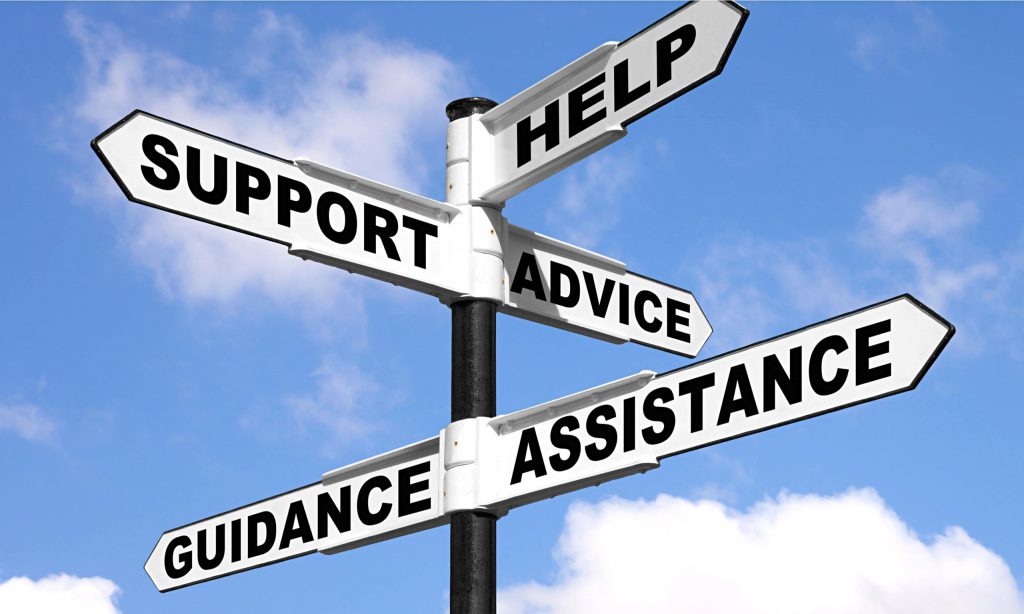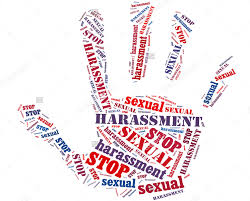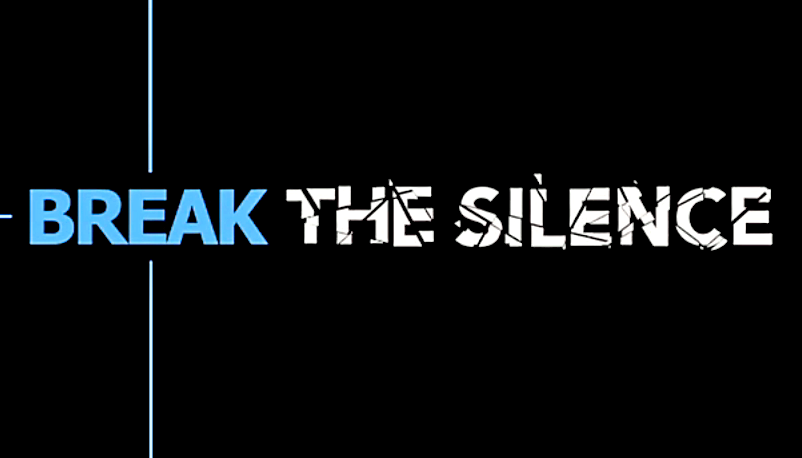
![]()
[hr]
In October 2017, the “Me Too” movement went viral in efforts to draw attention to the rampant and prevalent sexual assault and harassment in workplaces. However, sexual assault and harassment are not limited to companies, organizations and businesses. It can occur anywhere at any time. With statistics showing that nearly one in five women suffers from sexual assault by the time they have graduated college, it is important that all people educate themselves on sexual assault and harassment.
LaKesha Varnell is the student diversity and Title IX coordinator at Jackson State University. She holds a Master of Public Health in health education and promotion. She is trained in interpersonal violence, date safe prevention and domestic violence and sexual assault through various state and national entities. She has agreed to share her knowledge so that the men and women of the JSU community can protect themselves. Education is power.
[dropcap]P[/dropcap]lease describe sexual assault.
Sexual assault is any violation of a person in sexual connotations that could be verbiage, groping, harassment, online exploitation, voyeurism, etc.
Please explain how certain verbiage can constitute as sexual assault.
Verbiage could be anything like catcalling or suggestive language related to sex and even names, like “thot,” (that h%$ over there) because it has a sexual connotation that could be considered sexual harassment.
Is sexual harassment or sexual assault defined as any form of unwelcome advances?
It’s definitely unwanted, unwarranted, or non-consensual.
What if a person is incapacitated? Please explain what incapacitated means.
Incapacitated means when a person is unable to give consent due to being under the influence of alcohol or drugs, mental health, mental disorder, being asleep or being passed out.
[dropcap]U[/dropcap]nder the influence can mean more than alcohol. It can also mean pills like opioids, right?
Yes, opioids (pain relievers), Ambien (sedative), Tylenol-Night Time, Nyquil (cold medications), if a person ingests any of these, depending on the amount, it can mean under the influence.
Does your experience find that in social gatherings, sexual assault or sexual harassment has the most potential to occur while a person is incapacitated or intoxicated and cannot consent?
Usually, it’s intoxicated. Jackson State University has not had very many cases of incapacitation sexual assault. However, impaired, intoxicated and under the influence becomes an issue because we have to figure out where do we draw a line. A person can actually be under the influence, and still, however, have a sound mind and body to make a conscious decision to have or not to have sex. We see it as a concern that has to be further addressed and clarified through policies and outreach.
However, state law says that a person under the influence cannot give consent to sexual acts. That put students in a very dangerous situation because you look at how many students that can go to jail or get expelled from school, based on that law.
It’s really on a case by case basis.
 What should a student, male or female, do if sexually assaulted?
What should a student, male or female, do if sexually assaulted?
There are two scenarios. If a student is assaulted, they should immediately call the police, try to preserve their clothing, and all the evidence that they can, or anything that they have drunk that night, and any text messages. If it happens on campus, students should call the Department of Public Safety.
Should a student, male or female, contact on campus assistance if they are sexually assaulted off campus?
Yes, even if it’s off campus, they should contact the Office of the Dean of Students or the Department of Public Safety. They will forward the report to Title IX. Title IX will reach out to the student. In most cases, if the student seems anxious about the assault, they will take him to the Latasha Norman Counseling Center, which is good if the student appears to have a psychotic break.
[dropcap]D[/dropcap]o you think there is a perception that men cannot be sexually assaulted and therefore, it is under-reported?
I think because the face of rape is so heterosexual and dominant, a guy cannot see the other aspect or component of rape. In some cases, we have homosexual assault, at which point, they are kind of confused or embarrassed as to what happens.
So, we try to do educational outreaches and presentations to let them know that assault is assault. Any non-consensual intercourse, fondling or groping is assault.
We are beginning to see an increase in reporting by men, and that’s a good thing.
Do you think that men are believed when they come forward?
I can say that they are, due to the courage it takes for a man to say he was assaulted. It’s very hard to want to go through that process if you don’t have a valid reason.
Can women sexually assault men?
Yes, women can sexually assault men.
What can a guy or girl do to deter the possibility of becoming a victim or victimizer?
JSU supports and encourages affirmative consent, where beyond a shadow of a doubt, consent is given.
One way to determine consent is to ask. We always get students that say: “Well, it’s kind of weird in the midst of the moment to ask.” But you would rather have a weird three seconds than being expelled from school and brought up on criminal charges.
Don’t go out after midnight. Go out with a friend. Don’t drink. Don’t leave your drink unattended. Those are good tips. However, we should put more focus on what people should do not to commit the actual rape. Don’t put something in a person’s drink. Take two friends with you if you can’t control yourself.
 How important is body language when trying to determine consent?
How important is body language when trying to determine consent?
It is very important because body language can be misinterpreted. Historically and presently, we do read some body language as a red flag, a yellow light, or a green light. But heavy breathing, panting, muscular contractions, or moaning can be misconstrued as a girl or guy is into it. For an 18-year-old, in the heat of the moment, those signs may signal a green light. However, those are also signs of a panic attack.
What is date rape and why is that not an accurate description of sexual assault?
Some of the words we use can mitigate what is actually happening because who goes on a date to get raped? So we have to be careful in the language that we use because we can deflect the seriousness of that crime and almost turn it into a sensitivity issue for the actual respondent.
Rape is rape. It should not be mitigated by certain precursors such as date rape or acquaintance rape.
[dropcap]D[/dropcap]oes victim blaming discourage people from reporting?
Yes, definitely. It’s already a great deal of self-blame, guilt, and shame involved in a rape. Compound those emotions with what culture and society think, and people just shut down.
What about the “Me Too” movement? There has been some debate about the length of time that has passed before a person shares their story. How do you feel about that?
The fact is, there is no limitation on reporting. It is best to report as soon as it happens because more evidence can be preserved if it is reported quickly. However, we can’t dictate how our minds process things. I might process it in two days. It may take another person two years.
So we have to be fair and considerate of the amount of trauma that person has experienced.

[dropcap]A[/dropcap]lthough a woman or man may experience an orgasm during a sexual assault, that does not mean it was consensual, right?
Right. Exactly. Our body has a defense mechanism, male or female, and that is part of that defense mechanism.
If a guy thinks that he is going to be accused of sexual assault after what he perceives to be consensual sex, what can he do to protect himself?
Anyone, under Title IX, who has been accused has the right to tell their side of the story, to ask the witnesses to come forward, to present whatever evidence that they have (whether it’s a text message or email) to prove that it was consensual. However, consent can be withdrawn at any time. So a text message would not be a valid way of justifying consent because a person could withdraw their consent during the act.
So, at any time, a person can say no even if they are in the middle of the act?
Yes. We try to do more prevention on the front end. We call it primary prevention, which includes the education which talks about the mystery of body language, miscommunication and then affirmative consent.
Do you think if “clear and concise” becomes the standard to proove sexual assault, it will make establishing sexual assault more difficult?
Yes, it is going to make it more difficult. Because if we go on clear and concise, or if we move toward clear and concise, more often than not, the respondent will be found not responsible. It boils down to his word against hers or their word against their word. So clear and concise is very hard to prove.
[dropcap]W[/dropcap]hat are the rights of a complainant and a respondent?
You should know that we do effectively respond and investigate claims on campus and off campus. Even if you’re at a school-sponsored event and you’re assaulted, you still have the right to file a complaint through Title IX. I want to reiterate that you can file a Title IX complaint without filing a criminal complaint. However, if we do a legality assessment and find that the respondent is a danger to the campus, we will report this information to the department of public safety.
If a criminal report is filed off campus, do they also need to do one with Title IX?
Yes. Again, that’s only to ensure the safety of the students and to make sure that any accommodation for the student is met. If they file a criminal complaint or charges, the department of safety will send us (Title IX) the report. We will ask the student – because they still have the option – whether or not they want to file a Title IX complaint. A Title IX complaint will not render a respondent guilty or innocent through the criminal system nor the University system. After the investigation, The Title IX office makes the recommendation to the judicial board whether or not an assault occurred.
Is guilt left up to the judicial board and police?
It is left to the judicial board through the university. The judicial board is actually the adjudication board that is trained by the Title IX Office to identify the different types of drugs, the behavior, and the neurobiology of a victim.







